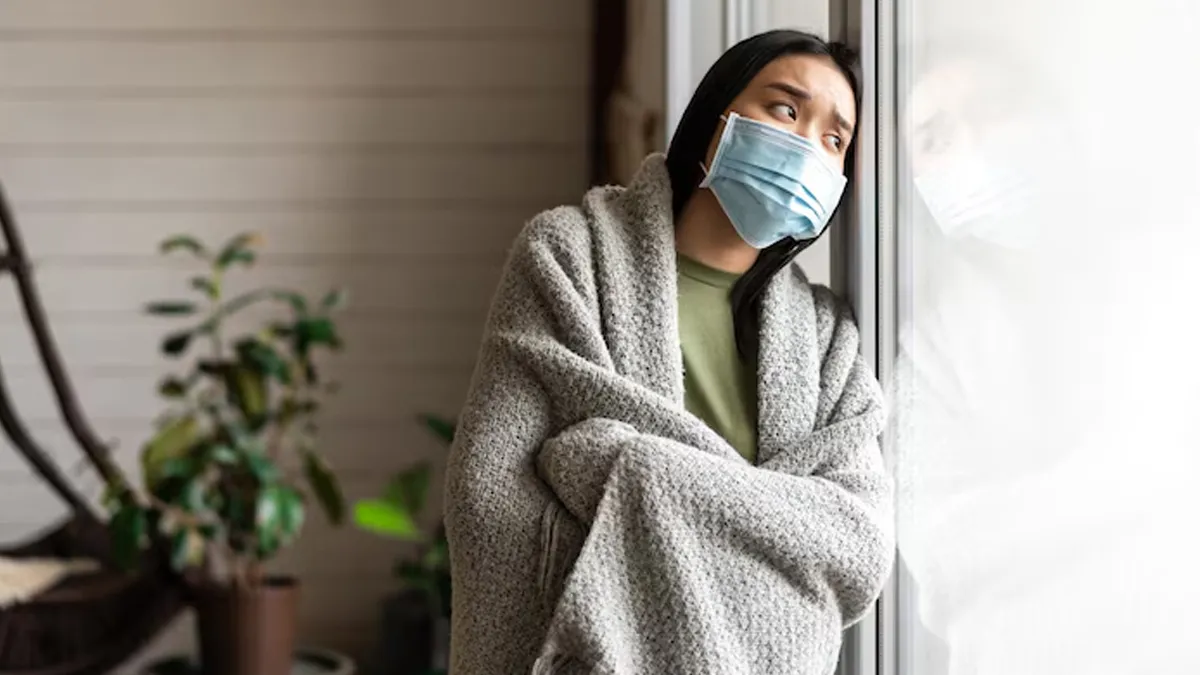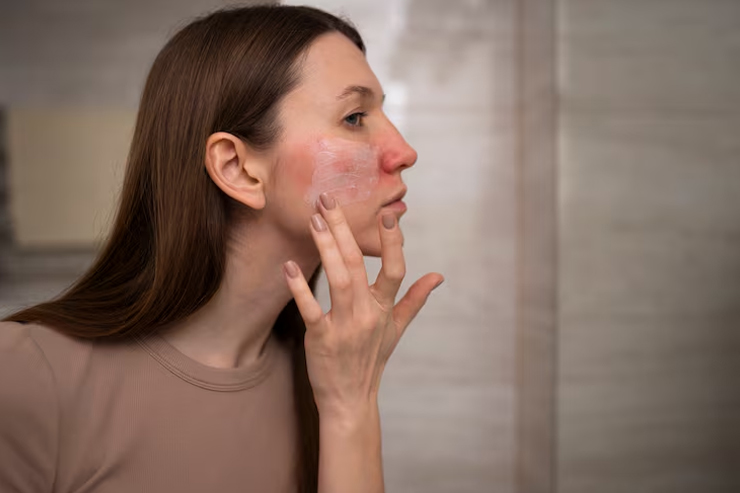
Hot flashes are one of the most talked-about symptoms of menopause, sudden waves of heat, excessive sweating, and flushing of the face that often leave women feeling uncomfortable, embarrassed, or even drained. But if you've noticed your hot flashes intensify during the rainy season, you're not imagining it. Humidity plays a surprisingly large role in aggravating this already challenging symptom. During menopause, declining estrogen levels confuse the hypothalamus, the part of the brain that regulates body temperature.
The result? The brain thinks you're overheating and instructs your body to cool down by sweating, even if you're in an air-conditioned room. But in monsoon weather, high humidity makes it harder for sweat to evaporate, trapping heat and making hot flashes feel even hotter, longer, and more exhausting.
From an Ayurvedic lens, this makes perfect sense. Menopause is seen as a phase of Vata-Pitta imbalance. Pitta governs heat and transformation, while Vata governs dryness and movement. Monsoon tends to aggravate both, leading to increased internal heat and erratic thermoregulation. So how can you manage this double whammy of hormonal heat and seasonal humidity?
This article is authored by TAMANNA SINGH, CERTIFIED MENOPAUSE CAOCH and FOUNDER MENOVEDA, India’s First Menopause only company

Certain herbs known for their cooling and adaptogenic properties are deeply helpful. Ingredients like Shatavari, Ashoka, and Lodhra work on hormonal balance and thermoregulation. Nirgundi is especially beneficial in calming hot flashes and inflammation.
Avoid spicy, oily, and fried foods that aggravate Pitta. Instead, embrace cooling foods like sabja seeds soaked in water, cucumber, melons, coconut water, mint, and buttermilk. Drink herbal infusions like coriander seed water or fennel tea.
Opt for light, natural fabrics like cotton and linen that allow your skin to breathe and wick away sweat.
Don't Miss:5 Summer Plant Care Tips To Shield Your Green Friends From Heat Waves

Frequent hot showers with neem-infused water, using natural talc or multani mitti on sweat-prone areas, and maintaining proper hygiene helps in regulating body heat.
Stress is a known trigger for hot flashes. Daily practices like cooling pranayama (like Sheetali or Anulom Vilom), meditation, or simply journaling can bring down your emotional temperature.
It’s important to remember that menopause is not a disease — it’s a natural transition. But how you support your body through it, especially during extreme seasonal shifts, makes all the difference.
This monsoon, let nature’s rhythm guide your choices — keep it cool, gentle, and supportive. With the right Ayurvedic care, you can regain your calm, your balance, and most importantly — your comfort.
Don't Miss:Yoga For Releasing Stress-Anulom Vilom & Pranayama
Image Credits: Freepik
If you liked this story, then please share it. To read more such stories, stay connected to HerZindagi
Also watch this video
Herzindagi video
Our aim is to provide accurate, safe and expert verified information through our articles and social media handles. The remedies, advice and tips mentioned here are for general information only. Please consult your expert before trying any kind of health, beauty, life hacks or astrology related tips. For any feedback or complaint, contact us at compliant_gro@jagrannewmedia.com.